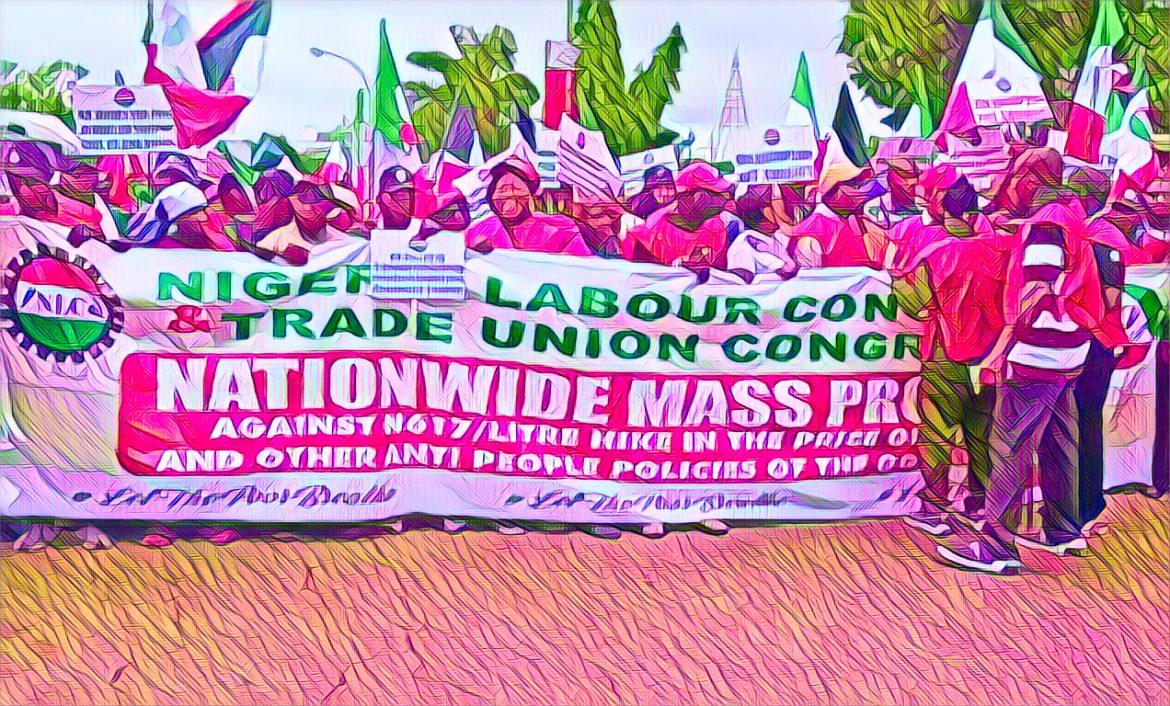Nigeria’s Joint Unions have issued a stern warning to state governments, threatening to shut down operations in states that fail to comply with the national minimum wage law. Comrade Adeleye Arapasopo, the union leader, made the announcement, emphasizing the unions’ commitment to ensuring that workers receive fair compensation.
The ultimatum comes amid growing frustration among public sector workers who have not seen the benefits of the minimum wage increase, despite its legal implementation. The national minimum wage, set at ₦30,000, was legislated to improve the standard of living for workers across the country. However, several state governments have failed to adhere to this mandate, citing financial constraints.
Arapasopo highlighted the disparity in wage implementation, pointing out that while some states have fully complied, others have either partially implemented the new wage or ignored it altogether. “It is unacceptable that in a country where the minimum wage is enshrined in law, some states continue to disregard it. We will not stand by while workers are denied their rightful earnings,” he asserted.
The union leader noted that the failure to pay the minimum wage not only undermines workers’ welfare but also affects their productivity and morale. He stressed that the unions would resort to industrial action if the state governments do not rectify the situation promptly. “We are prepared to shut down all operations in non-compliant states. This is not a threat but a necessary action to protect the rights of workers,” Arapasopo warned.
The Joint Unions’ decision has garnered support from various labor organizations and civil society groups. They argue that the minimum wage is a critical component of economic justice and social stability. “Workers are the backbone of our economy. Ensuring they receive a fair wage is not just a legal obligation but a moral one,” said Dr. Peter Adebayo, a labor rights advocate.
However, state governments have responded with mixed reactions. Some have pledged to address the unions’ concerns, citing ongoing efforts to balance budgets and allocate funds for wage payments. Others have expressed difficulties in meeting the wage bill due to dwindling revenue and economic challenges exacerbated by the COVID-19 pandemic.
Governor Kayode Fayemi of Ekiti State acknowledged the unions’ grievances and assured them of his administration’s commitment to full implementation. “We understand the importance of the minimum wage and are working tirelessly to ensure that all workers receive what is due to them. It is a complex issue, but we are making progress,” Fayemi said.
Conversely, other state officials have called for a more nuanced approach, suggesting that the federal government should provide financial support to states struggling to meet the wage requirements. They argue that without such support, some states may face severe financial crises, leading to further economic instability.
Despite these challenges, the unions remain resolute. They have set a deadline for compliance and warned that any state failing to meet the minimum wage requirements by the end of the month will face a complete shutdown of services. This includes halting activities in key sectors such as healthcare, education, and transportation.
The looming shutdown has sparked concern among citizens who rely on public services for their daily needs. Many fear that prolonged industrial action could lead to significant disruptions and hardship. Nevertheless, there is widespread support for the unions’ stance, with many workers expressing hope that the threat of a shutdown will compel state governments to act swiftly.
In conclusion, the Joint Unions’ threat to shut down non-compliant states underscores the urgent need for state governments to adhere to the national minimum wage law. As the deadline approaches, all eyes will be on the state administrations to see if they can resolve the issue and avoid the potentially crippling effects of a state-wide shutdown.
Source: Tribune Online Nigeria


